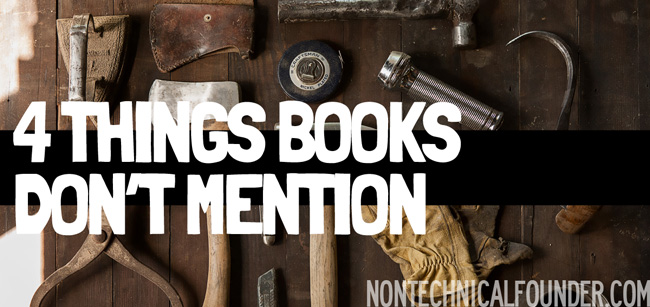
I’ve spent / spend a lot of time reading and trying to educate myself on everything SAAS.
I was just jotting down some things I never learned a little while back and thought I’d publish it. Hope it helps someone!
Don’t expect much profit.
If you’re looking to quit you day job and have an income you can live off in the next 6 months… Sorry to break it to you but Saas isn’t the answer for you.
Expect to put out $10-20k for the MVP and then reinvest the cash-flow into continued development or advertising. If you’re looking for quick cash-flow software is not the place for you. If you’re looking to build a long term asset. Then it’s something to pursue.
Quick cash-flow = services / products
Long term asset = software
Why not much profit? It takes a while to make back your initial investment when you have to also pay for ongoing support and development. The money simply goes out quicker than it comes in. Eventually you’ll hit the breaking point where the cash-flow coming in from customers goes over the expense mark.
More startups fail than succeed (even b2b lifestyle businesses)
Let’s get some accurate perceptions out there. Starting a software company is hard no matter where or how you’re going to do it. And let’s face it. Most people will fail.
Perceptions often shift that large consumer start ups are the ones that fail most often but it happens just as often for small b2b software. Some might not see it as a failure. But not being able to make your initial investment 2 years down the line should be considered a product “failure” That doesn’t you personally don’t grow and learn more than you could ever imagine. It just means you’re not quiting your job to work on the start up.
People Person?
I’m not sure if you consider yourself a people person, but if you’re launching a start up… You’re about to become one.
There is no way you should higher a sales person within the first year. You can handle the sales. It will be uncomfortable and time consuming but there is so much to learn about your product and what needs to be done to sell it.
You’ll have to deal with happy people and incredibly pissed off people. You’ll have customers who just are fine with everything and always giving you complements. And then you’ll have people always finding problems and never happy with the product. Obviously the first one is a little easier to deal with, but you still need a game plan to make sure problems aren’t getting swept under the corner.
What to do when you’re ready to quit.
You’re running out of money, not getting as many customers as you wanted, and you sit at your desk and can’t figure out how to make it work.
What do you do? How do you find the motivation to keep going.
Over my time doing research and talking with successful people in not only business but also sports. Those that can hang in there through the tough times (even when it looks hopeless) have a far higher chance of succeeding in the long run.
They find a way to get the money or go without – They gut through it even when it’s not working. It’s not blind hope, without a plan or goal, but determination.
Finding motivation 1 year and 8 customers in.
How do you find the motivation to keep following up with leads and for the 8th time when you’re not breaking even and you’ve missed your goals for the 3rd month in a row.
That’s a hard question. For me it’s going back to those goals.
* Did I set effective goals?
* Is my plan to get to those goals REALISTIC?
If you don’t have a plan then you need to start there. If you
 Follow
Follow